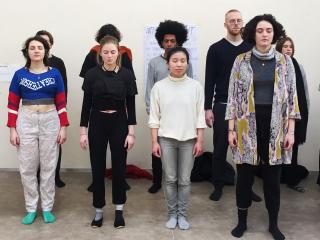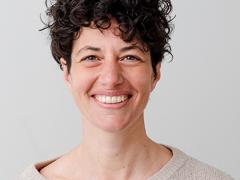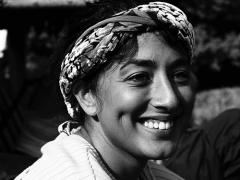
- Regenerative Activism: an Introduction
Workshop Series
Regenerative activism is a zone of learning and action in which personal and social transformation move each other forward. Inspired by Black and Indigenous activist practices and the idea of inner ecology, it aims to activate our innate emotional and bodily intelligence, that helps us grounding and feel belonging, responding flexibly to our environment, being empathic and engaged in the world.
Why is this important?:
This time is marked by unprecedented challenges and political, socio-economical and ecological crises. There is a growing movement of activists offering resistance, building collaborations and creating alternative ways of living. However, activists and care workers all over the world are confronted with similar struggles of mental and emotional health that are caused by working in highly intense environments.
Next to the individual wellbeing of activists there is an enormous potential for transformation going to waste, as people are burning and dropping out - and with them their knowledge and skills. In this perspective it is clear that to meet the high level of emotional intensity and consequences of trauma in activist environments we need to develop emotional clarity and resilience.
What we offer:
In this introductory workshop series we will introduce tools and methods that can support the practice of actively processing the emotions that we encounter in ourselves and in the world
while being aware of the social framework and the power relationships in which these emotions are taking place. The different methodologies that we integrate in our work share three core principles:
- Simple human presence, listening, and compassion allow us to come into deeper contact with ourselves and process whatever difficulty we encounter.
- Shifting away from the current overemphasis of cognitive and intellectual capacity of humans, the entirety of the body or soma needs to be reconnected and engaged to come into a state of attentiveness, attunement, resilience and creativity.
- Feelings that are traditionally held as negative, such as sadness, anger and shame and fear, are seen as indispensable in enabling us to navigate complex realities
- We put emphasis on the creation of inclusive and safer spaces to practice vulnerability and openness where we are curious about each other, allowing for the themes and emotions that we are all struggling with to connect us. We value empowerment, community, and an awareness that our resilience capacity manifests in a wider range of choices and relationships of solidarity.
*This will be a mixed space, we invite people with different identities. Our intention is to create a “safer place”, exploring cooperation with awareness of our different experiences.
Our work draws on the methodology and practice of Somatics, Feeling Work by Vivian Dittmar, Authentic Movement, Deep Ecology, Re-evaluation Counseling, Pantarei Approach and Emergent Strategy.
We Raquel and Diana will facilitate the workshop series. Looking forward to meeting you!
Language of instruction: English
Ausführliche Seminarinformationen
Seminarleiter*innen

Diana Sirianni

Raquel Lorenz
Teilnehmerstimmen
»What better way to connect to your child than through contact improvisation?!«— Naomi // Berlin
»A space for gentle growth and mindful development! With and by loving, professional companions who work with the depth of their own experience!«— Na Mi // Berlin
»For me, the Somatic Basics Training is a year of experience, research and learning that connects me with myself and the world again and again. It inspires and accompanies me in my own search for meaning. «— KS // Berlin
»Somatic teaches me to be mindful with my own body and myself. It leads me to an unbiased consideration of my needs and feelings. You could also call it self-love. «— M.M. // Berlin
»I have become more sensitive to my body and its structures. I identify my body more than before as my home. «— TL // Berlin
»Somatic gives me more awareness and thus love and attention for my body. «— Henriette // Berlin
»Thank you for the wonderful journeys through the inner and outer landscapes.«— Miriam // Berlin
Kosten
Dates:
Saturday | 03. Sep. / 10. Sep. / 17. Sep. | 18:00 - 21:30 Uhr |
Costs:
Whole series: 45 - 90 €
Drop In: 15 - 30 € per session
(write us a mail, if you can't afford it and would like to be part of it, we'll see how that can be possible)
Payment on site
Anmeldeinformationen
BerlinSomatische Akademie Berlin
Paul-Lincke-Ufer 30
10999 Berlin | side building
1st backyard
4th floor
